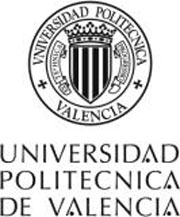 The largest of the 3 UPV Campus is in the city of Valencia (Spain) (www.upv.es/index-en.html). It counts with approx. 2.600 professors and 38.000 students. It is organised in 44 Departments and 40 Research Institutes. ICTA-UPV has been created in 2006, coming from the structure of the Animal Science Department.
The largest of the 3 UPV Campus is in the city of Valencia (Spain) (www.upv.es/index-en.html). It counts with approx. 2.600 professors and 38.000 students. It is organised in 44 Departments and 40 Research Institutes. ICTA-UPV has been created in 2006, coming from the structure of the Animal Science Department.
It is an Animal Production Institute making research with rabbits, sheep’s, goats, bulls, fish..., considering several areas: genetic improvement, reproduction, feeding, animal production technologies, aquaculture, etc. formed by 25 stuff researchers. It has been recently involved in two EU projects and a big number of national projects. As an example just the Aquaculture Group has carried out 13 National projects from 2002 to now. From 2001 on Juan F. Asturiano has been PI/Coordinator of 7 projects, collaborating in 2 more as researcher.
Tasks inside the project
ICTA-UPV team will lead WP5, developing and improving techniques for the control of European eel male reproduction. Moreover, out team will be involved in some other WP’s.
Relevant experience regarding major tasks
The aquaculture group began experiments on reproduction of eels in 1998 and have collaborated in several research projects financed by Generalitat Valenciana (local government), the Spanish Ministry of Education and Science, or private funding. These projects resulted in experience with production of eel sperm and production of eggs, and fertilisation and embryo development until morula stage was obtained for the first time in Spain. Techniques for hormonally induced eel reproduction have been improved, as well as protocols for sperm cryopreservation and evaluation of their sperm quality.
Project participants
Dr. Juan F. Asturiano. Fish reproductive physiology (European sea bass, gilthead seabream, eel), fatty acids roles in fish reproduction, genetic improvement, gametes quality evaluation, sperm cryopreservation.
Dr. Luz Pérez. Eel reproductive biology, female maturation patterns, histology, egg quality and fertilisation techniques
Dr. Miguel Jover. Aquaculture, feed composition, fish growth, fatty acids and amino acid analyses
Dr. Silvia Martínez. Aquaculture, feed composition, amino acid analyses.
Dr. Ana Tomás. Aquaculture, feed composition, fish growth, fatty acids analyses.
Dr. David S. Peñaranda. Eel sperm experiments, reproductive physiology, microsatellites, molecular biology.
Dr. José S. Vicente. Mammals and fish, sperm diluents, sperm and embryos cryopreservation, cryobanks management.
Dr. Francisco Marco. Mammals and fish, sperm and embryos cryopreservation, sperm quality evaluation techniques, image software’s.
Relevant publications
Asturiano, J.F., Pérez, L., Garzón, D.L., Marco-Jiménez, F., Peñaranda, D.S., Vicente, J.S., Jover, M. (2004). Physio-chemical characteristics of seminal plasma and development of media and methods for the cryopreservation of European eel sperm. Fish Physiology and Biochemistry 30, 283-293, 2004.
Asturiano, J.F., Marco-Jiménez, F., Peñaranda, D.S., Garzón, D.L., Pérez, L., Vicente, J.S., Jover, M. (2007). Effect of sperm cryopreservation on the European eel sperm viability and spermatozoa morphology. Reproduction in Domestic Animals 42, 162-166.
Garzón, D.L., Peñaranda, D.S., Pérez, L., Marco-Jiménez, F., Espert, X., Müller, T., Jover, M., Asturiano, J.F. (2008). Effects of pH, sodium bicarbonate, cryoprotectants and foetal bovine serum on the cryopreservation of European eel sperm. Reproduction in Domestic Animals 43, 99-105.
Marco-Jiménez, F., Pérez, L., Viudes de Castro, M.P., Garzón, D.L., Peñaranda, D.S., Vicente, J.S., Jover, M., Asturiano, J.F. (2006). Morphometry characterisation of European eel spermatozoa with computer-assisted spermatozoa analysis and scanning electron microscopy. Theriogenology 65, 1302-1310.
Marco-Jiménez, F., Garzón, D.L., Peñaranda, D.S., Pérez, L., Viudes-de-Castro, M.P., Vicente, J.S., Jover, M., Asturiano, J.F. (2006). Cryopreservation of European eels (Anguilla anguilla) spermatozoa: Effect of rate dilution, foetal bovine serum supplementation and cryoprotectans. Cryobiology 53, 51-57.